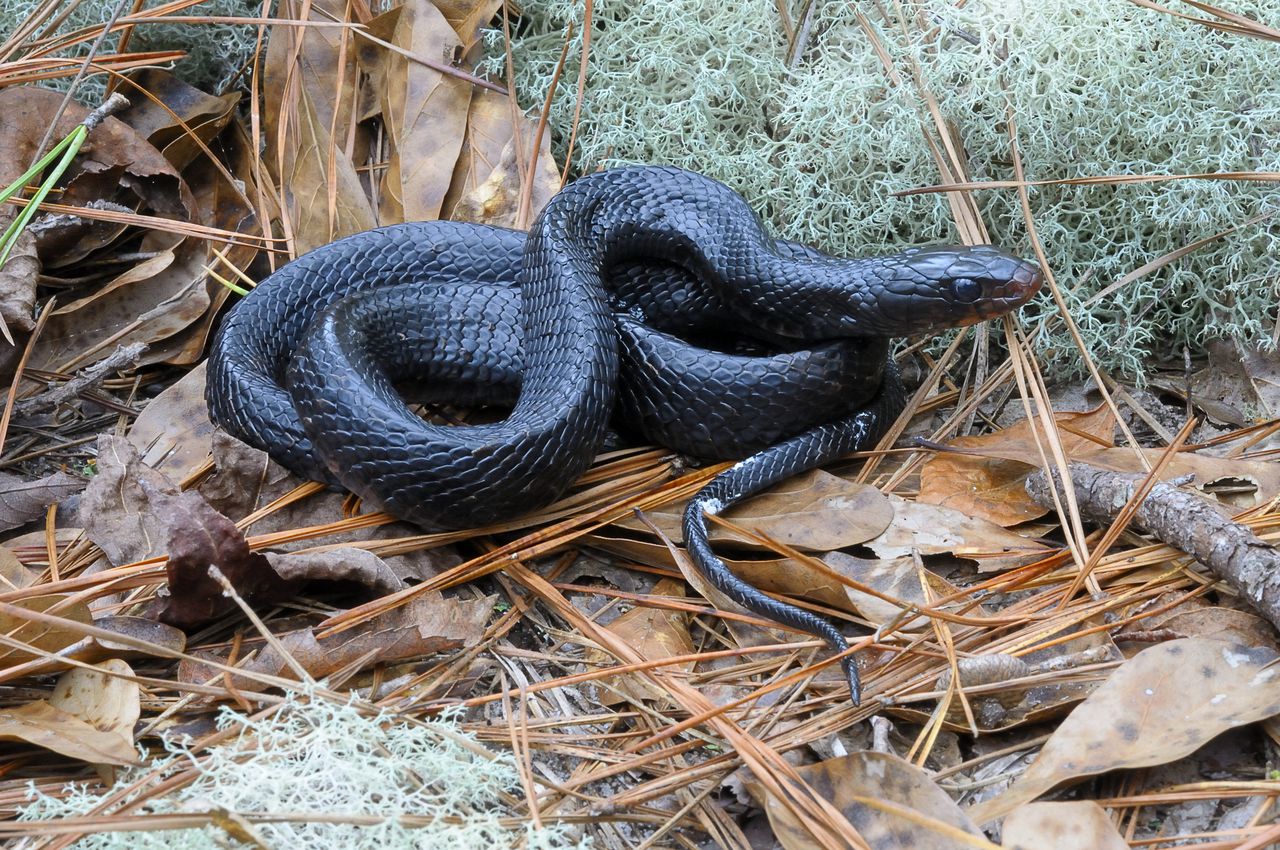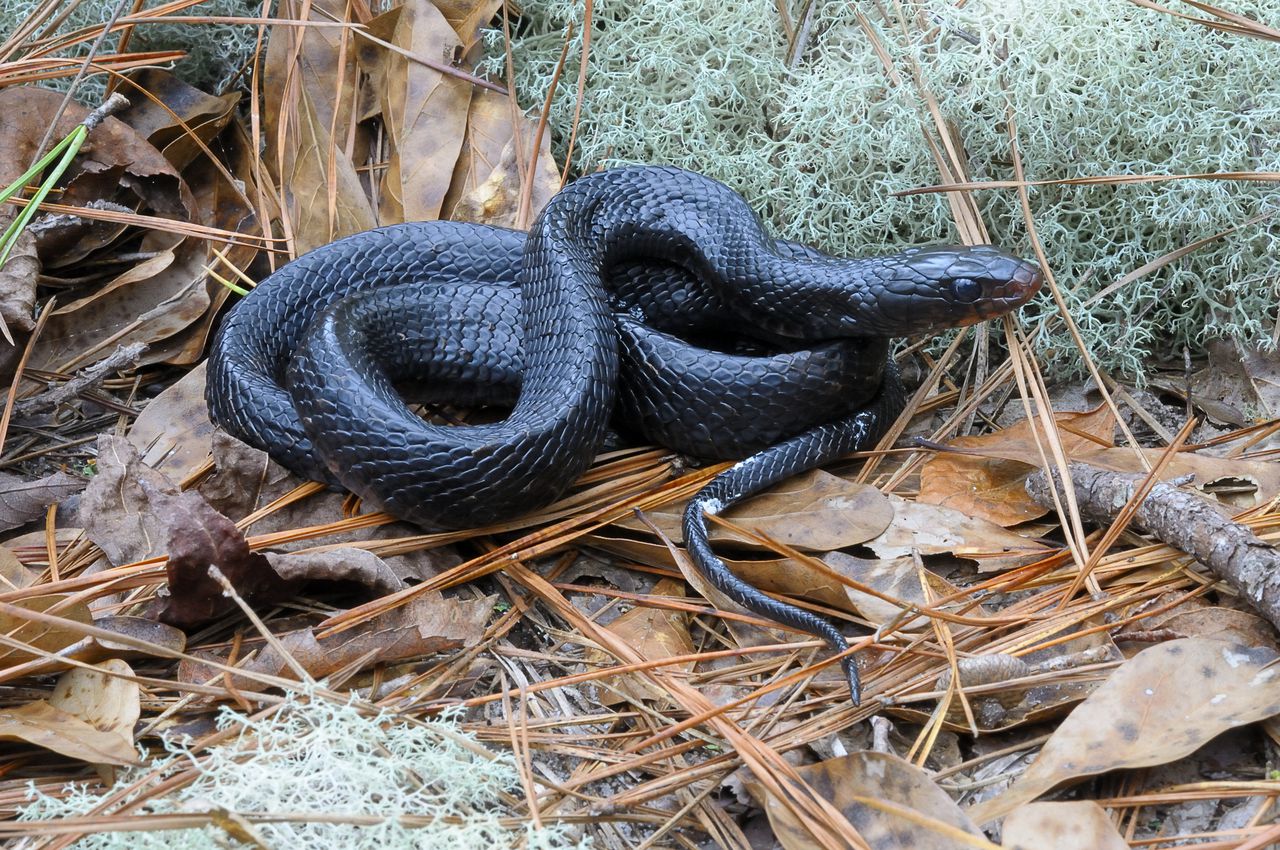Researchers with Auburn University captured a young, 27-inch eastern indigo snake believed to be the offspring of captive bred specimens.
Since a captive breeding and release program for the eastern indigo snake (Drymarchon couperi) was launched in Alabama in 2010, wild specimens haven’t been seen in the wild. Until now.

Jim Godwin/Auburn University
This is the offspring of captive bred eastern indigo snakes.
Last week, researchers with Auburn University captured a young, 27-inch eastern indigo snake that they believe to be the offspring of the snakes that have been reintroduced into the state’s Conecuh National Forest.
“We’re releasing these snakes that are all generally about two years old, with the hope, and the expectation that eventually the snakes will survive from year to year and breed in the wild,” Jim Godwin, a biologist with the Alabama Natural Heritage Program at Auburn University told AL.com. Godwin is currently overseeing the indigo snake restoration efforts in the state, which launched in 2010. In the mid-2000s, ReptilesMagazine.com contributor Michael P. Wines cared for the hatchlings prior to their release.
Climbing A Tree To Save An Eastern Indigo Snake
Breeding the Eastern Indigo Snake
“It’s very exciting for us to find this young snake that confirms one measure of success that we’ve been after all along.”
The eastern indigo snake is the longest native snake in the United States, sometimes reaching more than 8 feet in length. The snake is a federally threatened species and certain restrictions are in place with regard to possessing them. A member of the Colubridae family, indigo snakes feed on a variety of animals, including small mammals, amphibians, birds, lizards, baby turtles, and venomous and non-venomous snakes.



